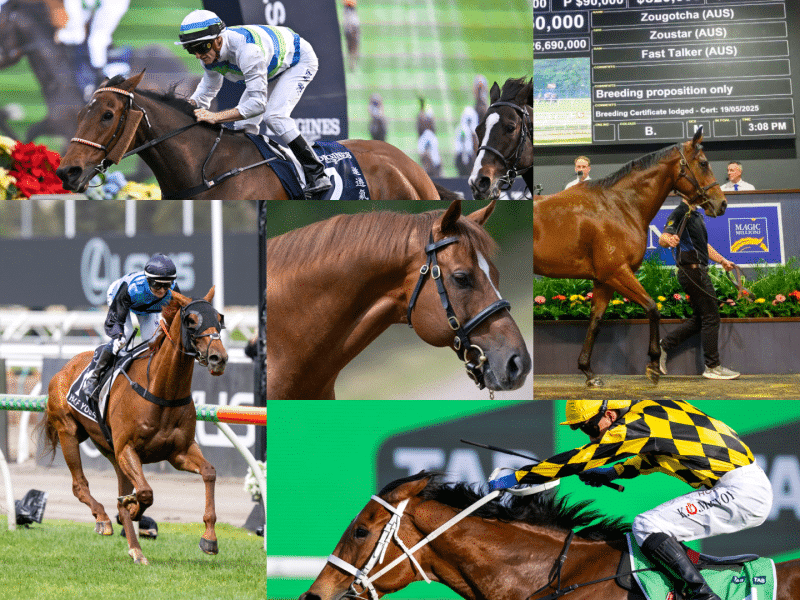Marc Lambourne: Honour has been lost in this Brave New World
My 17-year-old threatened with the impending intensity of high school, final year, has sought the solace of a favourite series, Homeland, streaming on 9NOW.
Fatal mistake, she is now captive to a routine of Ladbrokes hyper-masculine betting promotions. When did betting on horses become this obnoxious?
No one, but no one, questions the legitimacy of financial markets trading, further the majority of the population participates routinely in insurance contracts; vehicle and property. For consideration (premium) we are rewarded (compensated) in the event of risk materialising.
Wagering on horse racing; consideration (wager), risk (chance of winning/losing), reward (payout), therefore renders punters as equine actuaries.
This was my introduction to the punting world, an individual game of skill. Somewhat low-brow, perhaps, but nonetheless with the virtue of what is known as a ‘battle of wits’, punters against bookmakers using intelligence and ability to defeat the other. I may be waxing lyrical but the betting rings belied the ‘Sport of Kings’ moniker which referred to wealthy horse breeders, instead pitting the proletariat against the bourgeoisie (members) with the former obtaining better prices with their access to the ‘outer’ discount bookmakers.
It may be submitted that the proliferation of TAB agencies diminished the wagering ideal, predicated on pokie-style ‘numbers without names’ five-dollar punters whom Ken Page seemed to solicit, a 1980s godfather of our modern wagering operators (WSPs). A side note, it is interesting to remark upon the success of early corporate (online) bookmakers advertising centering upon the desperate creepiness of the off-course TABs.
Nonetheless, down at the track it was ‘catch and kill your own’. One may try and cadge better odds from a bookie, but there was no expectation of a special deal. Indeed, were one to be offered such, then clearly you were a ‘special-needs’ punter, unfit for the battle of the punt. The bookie was so keen for your business that you received unlimited credit plus a roll of the board (better than displayed odds).
Ignominy to those of us in for the fight.
Fast forward to the current day and it seems the majority are ‘special-needs’ punters. We lap up Protest payouts and bonus bets/money back for simply having a bet. We’re urged by seemingly benevolent, community-minded wagering service providers to hang with our mates and pile onto the same horse into another consensus selection and yet another.
A confected social ritual of extremely suspect provenance. Furthermore, the honour of the punt has been cast aside and forever lost.
How is it that the digital culture/information revolution which expanded our form analysis possibilities seemingly exponentially has effectively driven wagering deviance downward into nonsensical consensus drivel?
The honour of the punt has been cast aside and forever lost
– Marc Lambourne
Aldous Huxley’s Brave New World nearly a century ago seems to predict our current wagering scenario. Our ten wagering controllers have maximised happiness by using advanced technology to shape and control punters.
Punters are better off with happiness than with truth (which I would label engagement). The search for truth involves a great deal of individual effort, of form study and betting execution. The very will to search for truth is an individual desire that the Brave New World of corporate bookmakers and their complaisant patrons, based as it is on anonymity and lack of thought, cannot allow to exist.
The Wagering State sees individuality as incompatible with happiness and social stability because it interferes with the smooth functioning of, and profit from, the punting community.
The Ten Wagering Controllers do everything they can to prevent punters developing individual identities. Their advertising uses subliminal reinforcement to condition punters to accept the corporatisation of the wagering space.
What then of the Regulator, the body charged by parliament to initiate, develop and implement policies to protect the public interest in horse racing, to maintain the appeal and relevance of horse racing to the general populace? May I posit the honour of horse racing and its requisite wagering?
Perhaps this body is under the influence of ‘soma’, in Brave New World a happiness drug but in our current world a revenue drug. The Ten Wagering Controllers are responsible for a steady stream of taxation remittance from the punters direct to the Regulator.
It is perhaps unarguable that the Regulator, via the provision of prizemoney and integrity oversight, has provided a contest worthy of the commensurate wagering.
However, is the Regulator aware that the public face of horse racing is in fact wagering, and not horse ill-treatment, breakdowns and deaths. Wagering advertising is prevalent on all platforms, witness my beleaguered 17-year-old.
It is this public promotion of wagering on horse racing and the behemoth of corporatism that lies beneath this promotion that risks the alienation of the public interest with its anachronistic, atavistic, stereotypical hyper-masculine portrayal of an intrinsically noble engagement.



